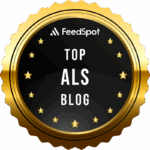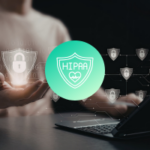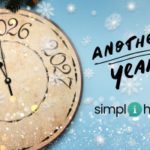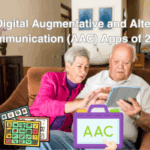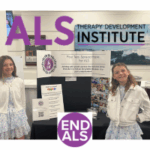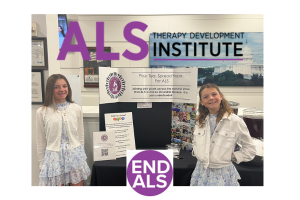An Interview with Steven Prevost.
SimpliHere has teamed up with Joe’s Brother Coffee owner and founder Steven Prevost to bring you the following interview, where we talk Steven’s connection to ALS, why he started roasting coffee, and organizations doing the important work for ALS advocacy and research.
MM (00:06): Good afternoon. Just to introduce myself a little bit, my name is Mindy Mayden and I work with SimpliHere in marketing. Would you like to go ahead and introduce yourself?
SP (00:20): I’m Steven Prevost. I’m the owner and roaster at Joe’s Brother Coffee in Grand Rapids, Michigan.
MM (00:26): Awesome, thank you. I’m so excited to get to talk with you today.
What is your connection to the ALS community?
MM (00:26): The first thing I wanted to ask you–obviously, our app is for patients and caregivers with ALS–so I wanted to get to know a little bit about your connection with the ALS community.
SP (00:47): My father was diagnosed in, I think, 1995. He passed in 1997. I was pretty young then still, and I wasn’t really aware of much of anything. It wasn’t until my brother was diagnosed with ALS in 2012, where I really started to tune in to what was going on. With my brother it was a short time between diagnosis and when he passed. It was only six months. My dad lived about two and a half, almost three years, after his diagnosis.
Were you one of your brother’s caregivers?
MM (01:42): So when your brother was diagnosed, were you one of his caregivers or his primary caregiver?
SP (01:49): His wife was his primary caregiver. I live in the West side of the state. He lived in Detroit area, so I didn’t get to see him much in that short period of time. She was his primary caregiver.
What made you decide to start Joe’s Brother Coffee? Why coffee?
MM (02:15): Well, thank you. I appreciate you being willing to talk about it. I know it’s very difficult to talk about, so thank you for sharing that with us. So going off of that, obviously you own Joe’s Brother Coffee andJoe was your brother. What inspired you to start your business and what made you decide on coffee specifically?
SP (02:37): Well, I was looking for a way to process my grief. Joe and I were very, very close. I was trying to find a positive way to deal with that. In a past life for him, he actually owned his own coffee shop for awhile. So that was kind of where I thought I would do something with coffee. Of course my initial thought was to name it Joe’s coffee, but that name was already taken, if you can imagine. I was a little late to the party on that naming option, so the second best option for me was Joe’s brother because that’s exactly who I am. I’m also Joe’s son, because my dad who also passed of ALS, his name was Joe, so it kind of fit. It seemed to work. So, yeah, I named the company after him and it went through a couple of iterations. At first, I was going to try and be a distributor of coffee and, you know, have another roaster and put my name on their bag, that kind of thing. That just didn’t resonate with my audience, and they were like, well, how come you don’t roast your own? And I’m like, you know, that’s a really good question. I should probably think about doing that. So over the next couple of years, I got myself a roaster and learned how to roast and kind of went from there. I’m now at the point where I’m ready to get into more of a brick and mortar situation and have a physical place where I can connect with the community and tell my story and provide people with really delicious coffee.
MM (04:37): Sounds great! I would love to try some.
SP (04:43): I can hook you up. I know somebody!
How does distribution work? Do you ship nationwide?
MM (04:45): I love the connection! So, if you don’t mind, tell us a little bit more about your business and this brick and mortar situation you mentioned. Are you focusing primarily on your local market in West Michigan, or do you distribute nationwide? Are you selling directly to consumers at this point or how does that look for you?
SP (05:09): I primarily sell to direct to consumers through my web presence–my website, social media, local friends and family, things like that. I do ship all over the U.S., every state in the union. I don’t ship outside of the United States. There’s a whole other bunch of problems that come along with shipping outside of the United States, so I haven’t crossed that bridge yet, but I’m really looking to connect with a lot more of my local people. That’s really what inspired me to go into the brick and mortar location. I’ve joined an incubator business, so there will be myself and a couple of other food businesses sharing the same space. Each of our businesses kind of complement each other, so there’s not real competition between us. We’re hoping to have that open up in the next few weeks. On the conservative side, less than another month hopefully, if things work out. But I’m still roasting and I’m still shipping.I have a couple wholesale accounts, I have a couple of coffee shops that sell bags of my coffee in their shops. I’m working on a little bit of retail, a little bit of wholesale.
MM (06:46): A little bit of everything, it sounds like. That’s awesome! I think it’s great that you get to have those other businesses with you, so you’re not having to do everything completely on your own.
SP (06:57): Yeah, it’s surprisingly…what I tell people when I talk, I guess, is if you want to go down a rabbit hole and never be seen again, learn about coffee roasting and learn about all that stuff, because it’ll suck you in. Especially if you have a curious type personality where you like to learn new things, coffee is definitely a way to go because there is a myriad of things to learn about. You may just never come back out of that hole.
MM (07:36): It sounds like a very high-energy hole to go down if you have that much caffeine around!
SP (07:43): Oh yeah, and you’ve got to love coffee, you really do, because you’re constantly tasting. I get samples in the mail all the time from different coffee growers and importers of them trying to get me to buy their green beans. Of course you get a sample and you have to roast it and you have to taste it. You’re constantly tasting all these coffees, which is, for me, I love it. I can’t buy every coffee in the world unfortunately.
MM (08:15): But at least you get to taste them!
SP (08:17): I do get to taste them. So that’s a nice perk.
Which organizations do you support with Joe’s Brother Coffee?
MM (08:20): Yeah, absolutely. So I know that you have a couple of organizations that you are supporting with Joe’s Brother Coffee. Do you mind telling me what those are and a little bit about them and your involvement with them?
SP (08:35): Sure. I kind of have to back up just a little bit because the whole idea of me to get involved with the coffee in the beginning was to raise money for ALS research. My narrow way of thinking at the time was, “Oh, we got to put money into research, research research to come up with a cure or treatment or something,” because there’s nothing. There’s one medication on the market that’s been out in the market for a long time, but it doesn’t really do much for the patients as far as prolonging their life. So my focus was “Oh, money for research.” When I would make a sale for coffee, I would donate the proceeds to research. The one organization that I really like is called ALS TDI, which is the ALS Therapy Development Institute. Their whole organization is 100% ALS research. They don’t do any other kind of medical research. It’s all about finding a treatment and a cure for ALS, which I love. I love that thinking. It’s like, “Let’s put our laser focus on this disease and do everything we can in our power to find some sort of relief or, you know, obviously the end goal is to find a cure.” I was attracted to that. So I was like, these are going to be my people and I’m going to send as much money to them as I can. I started reading everything I could about ALS–who’s involved, what’s going on around here, trying to find news stories and whatnot, and I came across the Susan Mast ALS Foundation, which is a local foundation here in West Michigan. I fell in love with them because they do for the ALS community what my family wasn’t able to have back when my dad had ALS, which was, trips to and from doctors, mental health support, Meals on Wheels. They do minor repairs and upgrades to your home, because if you have ALS, you tend to become necessary to use walkers and wheelchairs and things like that, and a lot of people’s homes don’t have that access. Part of the Susan Mast ALS Foundation ‘s work that they do is to make those arrangements for people to have those changes done in their home, to provide a little bit of financial support because that stuff is very expensive, and so many other things that they do for people who are living with ALS. They’re making a positive impact on those people now. No matter how long that person ends up living, they are an integral part of keeping that person cared for. As I mentioned with my brother, Joe, his wife was his primary care person. For those people who don’t know, ALS is very, very demanding, and when a person reaches a certain point, they require 24-hour care. Most of the time that’s in the home, so that falls on the spouse or the children or other close family members. The Susan Mast ALS foundation has volunteers who will go into the home and give that primary care person a break. They’ll spend time with the patient, prepping meals, bathing, different things that need to be done, or even just sitting there and visiting, which allows the primary care person to go out grocery, shopping, to appointments, whatever they need to do, or at least just personal time in another room. That’s just a few reasons why I love the Susan mast ALS foundation, because they’re constantly thinking about how can we take care of these families? Research is great, and it’s necessary. But it’s slow. It takes time, and most people don’t have time. That’s why I love the Susan Mast ALS Foundation because their mission is to take care of people now. Let’s take care of their immediate needs, the best we can, because everybody who’s involved with the Susan Mast Foundation has been touched by the ALS disease. Having that understanding is invaluable. I could probably go on, but I feel like I’m rambling.
MM (14:50): You’re not, no, this is wonderful. It sounds like they really are in tune with what is needed for patients and families, now. It’s wonderful.
SP (15:03): They are very much in tune with it. Susan Mast, she passed of course, but her husband was the one who started the Susan Mast Foundation because of the similar situation that he and his wife went through. They found very little support in the community and very few people that understood what it was like to go through what he and his wife went through. So that’s why he started that foundation and Julie, who is the Director of the foundation, she is super amazing. She, same thing, had a person extremely close to her who passed, so she made it her life mission to work in the ALS community to do whatever positive impact she can do.
What is your goal for Joe’s Brother Coffee?
MM (15:59): Sounds like it’s really a community full of very passionate individuals like yourself. What would you say is your overall goal for Joe’s Brother Coffee? Your goal, where you see it going in the future, things like that?
SP (16:19): That’s a bit of a deep one.
MM (16:25): Just your thoughts! It doesn’t have to be concrete.
SP (16:30): Well, my vision for Joe’s brother coffee has changed over the years to different things. Primarily it’s just to exist, number one. Number two is to spread news about ALS, and if I make a profit, great. Basically I just want it to be part of the community and have a presence and be known for my connection to ALS as a company who gives back. That’s pretty much the whole purpose.
What advice do you have for recently-diagnosed ALS patients and their families?
MM (17:25): Well, I just want to say that I’m super excited for you and your new retail space. I cannot wait to see what it turns out to be and what it turns out to look like. I wish you the best of success. My last question that I have for you today–and this might be a deep one, too, so take your time thinking about an answer–but do you have any advice, or if not advice, words of wisdom or anything you would like to share with recently-diagnosed ALS patients and/or their caregivers and families.
SP (18:04): Yeah. That is deep.
MM (18:05): Take your time.
SP (18:09): I guess the first thing is that it can be extremely shocking for those people who are barely even aware that the disease exists. When you get that diagnosis, your world changes immediately. It does a complete 180 and you feel like the world is falling down around you. You don’t know where to turn. You don’t know what to do. What is this crazy disease? ALS, what does that even mean? Everybody kind of understands cancer, you know. It’s been very prevalent in everybody’s mindset for so long, but ALS is a rare disease, technically speaking, so a lot of people just don’t have a grasp as to what it is. So I would say number one is just take a deep breath. I understand that you don’t get it. I was exactly there, too. My family, we didn’t know what to do, where to turn, what questions to ask. The doctors were always like “Do you have any questions?” I don’t know. Do you have a list I can go off? Besides what is it, I mean, and then of course you get a mouthful of technical words that you don’t understand, and all you want to know is how much time do I have with my loved one? You say it’s terminal, but what does that mean? That’s why I say the first thing to do is just bring whatever it is you do to bring yourself calm, whether that’s praying, meditating, crying, whatever, just do that first and get that out of the way. Then clear your mind, because it’s not going to happen tomorrow. It could happen quick, like it did for my brother which was six months, and that seems like tomorrow, but you’ve got a little time to figure things out. You’re going to have to read up on everything as much as you can, and then I would say to reach out wherever in your community, and they’re not far away. I found a bunch of them on Facebook. There are a bunch of organizations around, like I spoke of with the Susan Mast ALS Foundation. There are many, many of those good people around the country. You’ve got to find them, call them, join with them and have them come to your house and talk to you, and then take advantage of whatever tools and options there are available to get you through it. That means counseling, that means late night phone calls sometimes for emotional support. Yeah, that would probably be the first thing I would do is try to find a group near you. Reach out to my website, joesbrothercoffee.com, where I actually have a resource page with a bunch of those groups on there with links to their websites. ALS is different for every individual who has the disease. And this is partly why it’s still technically a rare disease because every person that gets it is different. Some people can live ten, fifteen, twenty years with it. Other people, like my brother, it just ravaged his body and he was gone in six months. No one knows how each person who has it is going to react and how much time they have. Now, there’s averages and numbers and all that, but none of that really matters when your loved one is affected with this disease because their time is going to be short and it’s going to change everyone’s life, so you’ve got to take advantage of every tool you have. There are a lot of people out there willing to help. All you’ve got to do is raise your hand and say, please help. Someone will come running. We’ve been there.
MM (23:46): Thank you so much for sharing that. I really appreciate it. I think that would be very helpful for anybody in this situation to hear, so thank you so much. I absolutely love everything that you’re doing with Joe’s Brother Coffee, and I’m really looking forward to continuing to get to collaborate with you in the future. Thank you so much again for meeting with us today.
SP (24:11): You’re welcome. Thank you for having me.
You can watch the full video interview below:
About SimpliHere
The mission of SimpliHere is to ensure efficient care and peace of mind for caregivers and their patients with neurological conditions that impact communication and mobility. Joanna Rosenberg founded SimpliHere to address communication gaps between caregivers and patients. Her personal experience when her mother lived with ALS exposed the challenges of communicating and understanding basic needs, as well as managing daily tasks. Download SimpliHere today!
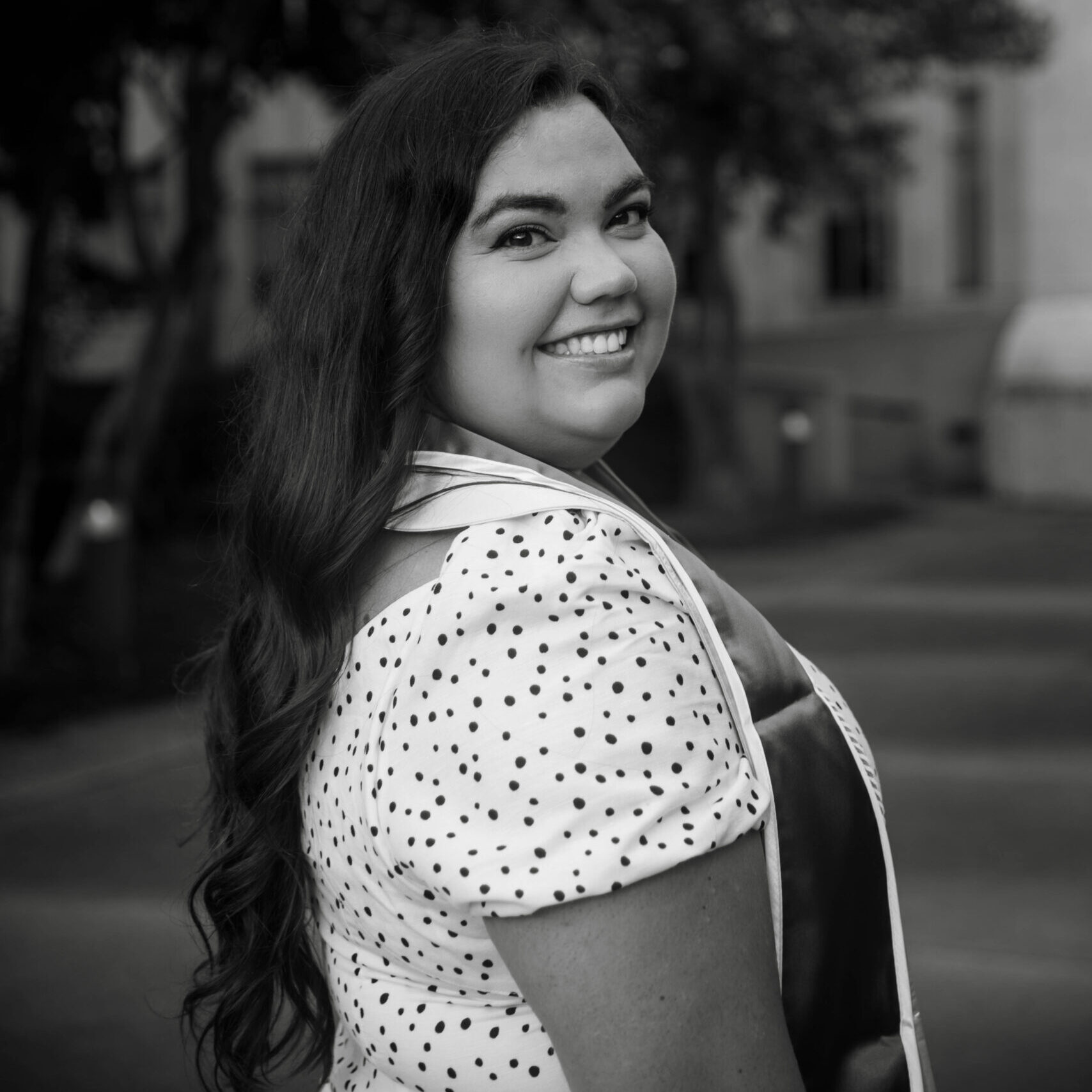
Melinda Mayden is a content writer who works in digital marketing and who enjoys writing to keep people both informed and entertained.
